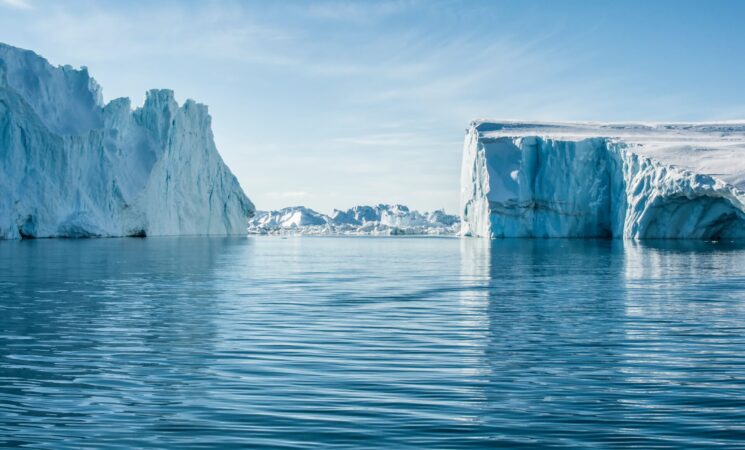8 January 2025, NIICE Commentary 9835
Sunil Kumar Chaudhary
In 2019, President Donald Trump’s suggestion to buy Greenland from Denmark was widely dismissed as an offhand remark. Yet, his interest revealed a deeper recognition of Greenland’s geopolitical and economic significance. The US President-elect Donald Trump has reiterated his wish to acquire Greenland again after being elected for the second term. As the Arctic rapidly changes due to climate warming, opening new trade routes and revealing untapped resources, Greenland is becoming an increasingly valuable asset. With its strategic location, rich natural resources, and growing relevance in global trade, it is no surprise that the US and other global powers are focusing more on the island.
Greenland’s importance lies not only in its resources but in its geographical positioning at the heart of the Arctic. As climate change accelerates, Arctic ice is melting, making previously inaccessible shipping routes viable. One of the most significant developments is the Northern Sea Route, which dramatically shortens the journey between Europe and Asia. This emerging passageway is already being used by Russia and China to boost trade efficiency. For the US, securing Greenland would provide access to these critical shipping lanes, ensuring its continued economic and strategic influence over a region that will become increasingly important in the coming decades.
Greenland is rich in natural resources that are gaining international attention. The island contains vast deposits of minerals like rare earth metals, lithium and cobalt. As the world transitions toward clean energy and high-tech industries, these minerals are expected to become even more valuable. Rare earth metals, which are crucial for manufacturing everything from smartphones to electric vehicles, are especially in demand. Greenland’s untapped reserves could significantly reduce global reliance on foreign suppliers, notably China, which currently dominates the rare earth market. Furthermore, Greenland’s offshore areas are becoming increasingly accessible for oil and gas exploration, which, despite environmental concerns, presents a lucrative opportunity for energy-hungry nations.
Trump’s interests in Greenland stemmed from these very economic interests—securing vital resources and reducing dependence on foreign markets. His administration had already increased US military activity in the Arctic, particularly around Greenland’s Thule Air Base. The base, a critical hub for missile defense and Arctic surveillance, holds even greater value as geopolitical tensions rise. Given the growing competition for Arctic resources and strategic positioning, securing a firm foothold in Greenland would ensure the US maintains influence in the region.
Since Trump’s first term departure, the Biden administration adopted a more collaborative approach, focusing on partnerships with NATO allies and Arctic Council members. However, the US continues to prioritize its presence in the region, especially with the growing military activity from Russia and China. Russia, which has long been dominant in the Arctic, has expanded its military infrastructure and Arctic presence. Meanwhile, China’s Belt and Road Initiative (BRI) has led to an increased Chinese footprint in the region, with investments in Arctic infrastructure and mineral exploration. Both countries’ increasing activities put the US in a position where securing its interests in Greenland will become even more urgent in the years to come.
A major consideration for US control over Greenland would be its military strategic value. Thule Air Base, which already plays a vital role in the US missile defense network, would become even more crucial as tensions with Russia and China grow. Beyond its missile defense functions, the base supports early warning systems and surveillance capabilities critical for US national security. Expanding military infrastructure in Greenland would further consolidate the US’s strategic position and could act as a deterrent against Russian or Chinese expansion in the Arctic.
However, the idea of US control over Greenland faces significant challenges. Greenland is an autonomous territory of Denmark, and any attempt by the US to assert control would be met with resistance from Denmark, which values the island’s political and economic independence. Greenland itself has been increasingly vocal about its aspirations for greater autonomy, with some calling for full independence in the future. Additionally, Greenland’s indigenous population, the Kalaallit people, has expressed concerns about foreign control, particularly over resource extraction that could damage their environment and traditional way of life. Any attempt by the US to take control of Greenland would likely lead to diplomatic tensions with Denmark and could provoke unrest within the indigenous community.
The broader geopolitical implications of US control over Greenland would extend far beyond the Arctic. Russia, which views the Arctic as a vital region for both security and economic reasons, would likely react strongly to any US moves to assert influence over the island. Likewise, China, seeking to establish a strategic economic foothold in the Arctic, could challenge US dominance in the region. The US would need to carefully manage its actions to avoid escalating tensions and ensure that it does not antagonize Russia and China in a way that could destabilize the broader Arctic balance.
Though the idea of US control over Greenland may have seemed implausible a few years ago, its economic and strategic importance has only grown more apparent. The Arctic is rapidly changing, and Greenland stands at the intersection of emerging global trade routes and untapped natural resources. Whether through formal acquisition or increased cooperation, the US will likely continue to pursue its interests in Greenland, recognizing the critical role the island will play in shaping the region's future.
In the coming years, the US will need to carefully weigh its options in Greenland, balancing economic interests with the need for political and diplomatic sensitivity. While the potential rewards—both economic and strategic—are significant, the path forward will be complex and fraught with challenges. Greenland, once remote and largely overlooked, has emerged as a pivotal player in the geopolitics of the 21st century, and its importance is only set to increase. How the US navigates its relationship with Greenland and its allies will shape the future of the Arctic, and ultimately, the global balance of power.
Sunil Kumar Chaudhary is a Research Fellow at NIICE.

